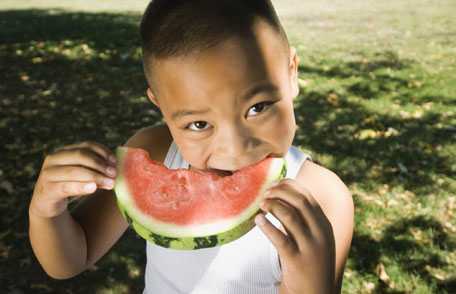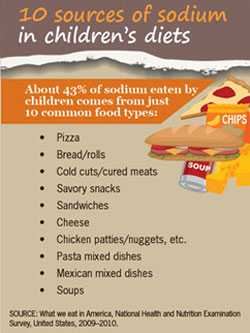Make your Kid's Lunch Healthy
 Just as your family is settling into summer mode, for many, August also marks back-to-school time.
Just as your family is settling into summer mode, for many, August also marks back-to-school time.
CDC encourages parents to become familiar with the school meal programs which require serving more fruits, vegetables, and whole grains and gradually reducing sodium over 10 years. Studies have shown that students who eat school meals are more likely to consume milk, fruits, and vegetables during the meal times. School meal participants have better intake of some key nutrients (e.g., calcium, fiber) than non-participants. But if your student brings lunch from home, parents can be mindful of packing a healthy lunchbox. Between teacher “meet and greets,” school supply shopping, and getting back on a routine sleep schedule, lunchbox packing tends to be last on the list. But, what your child eats for lunch matters more than you might realize.
Don’t Pack the Salt
A recent CDC Vital Signs report found that about 90 percent of U.S. school-aged children consume too much sodium each day. To put that into perspective, if there are 20 kids in your child’s class, 18 of them will be eating too much sodium each day. Which group does your child fall into?
The report also found that one in nine children ages 8-17 has a blood pressure that measures too high, putting them at risk for heart disease. A healthy, low sodium diet can have an important effect on a child’s blood pressure and heart health now and later in life.
One way to reduce the amount of sodium in your child’s lunchbox is to stick to lower-sodium options, such as cold cuts (marked low sodium), dinner leftovers such as grilled chicken or lean meat, and fresh fruits and vegetables as snacks.

Identify the top sources of sodium in your child’s lunchbox.
How to Beat the Surprising Sodium Sources
You may be surprised to find out what the top sources of sodium are in children’s diets (see sidebar). If you can’t eliminate these items from your child’s school lunches, at least try to choose lower sodium options. Here are some tips to help tackle high sodium in your child’s lunchbox:
- Identify the foods contributing the most sodium to your child’s lunchbox and find lower sodium options. Just like the lower-sodium cold cuts that are now offered at most delis, many snacks and prepared soups are also cutting the sodium. To find lower sodium packaged food options, read the nutrition labels and compare the sodium amount in similar products, then choose the option with the lowest amount of sodium. For example, some varieties of bread can vary from 80 to 230 mg of sodium per slice. That can make a big difference in lunch-time sandwiches. Your kids may not even realize the difference! Check out the graphic [181 KB], which shows how much sodium can vary within food categories.
- For a healthy snack, pack fresh fruits and vegetables with lunch every day, like a small bag of baby carrots, snow peas, or grape tomatoes.
- Encourage your child to get involved. Let them help pack their lunch, and talk about ways to make their favorite items healthy or lower sodium. Let them put their snack packs together or pick what they want for lunch the next day based on what healthy, low-sodium leftovers you have in the fridge.
Take these tips beyond your child’s school lunchboxes and apply to planning and preparing food for other school activities, such as parties, sporting events, and extracurricular activities.
Pack-and-Go Snack and Lunch Recipes
Need inspiration for easy pack-and-go snack and lunch recipes that are lower in sodium? Check out these recipes and more in the Million Hearts® Healthy Eating & Lifestyle Resource Center:
By packing a lower sodium school lunch for your children and creating an environment with lower sodium food options at home, your children can develop healthy, low sodium eating habits that will last throughout their lives and help improve their heart health. For additional information about children and sodium and more tips for parents to help lower their family’s sodium intake, visit the CDC Salt website.
Back-to-School List
Get involved in these “extracurricular activities” for your family to have a healthy school year.
- Join the conversation! Log into Twitter on August 18th at 1 pm to chat with Million Hearts® (@MillionHeartsUS), EveryDay Health (@EveryDayHealth), and family nutrition experts about packing healthy, lower-sodium back-to-school lunches. Use #HealthTalk in your tweets to participate and retweet your favorites!
- Ever wonder what your child eats when they purchase lunch at school? Visit your children’s school and have lunch with them this National Take Your Parents to School Lunch Day. Learn more here.
- Page last reviewed: August 5, 2015
- Page last updated: August 21, 2015
- Content source:
- National Center for Chronic Disease Prevention and Health Promotion, Division for Heart Disease and Stroke Prevention
- Page maintained by: Office of the Associate Director for Communication, Digital Media Branch, Division of Public Affairs




 ShareCompartir
ShareCompartir